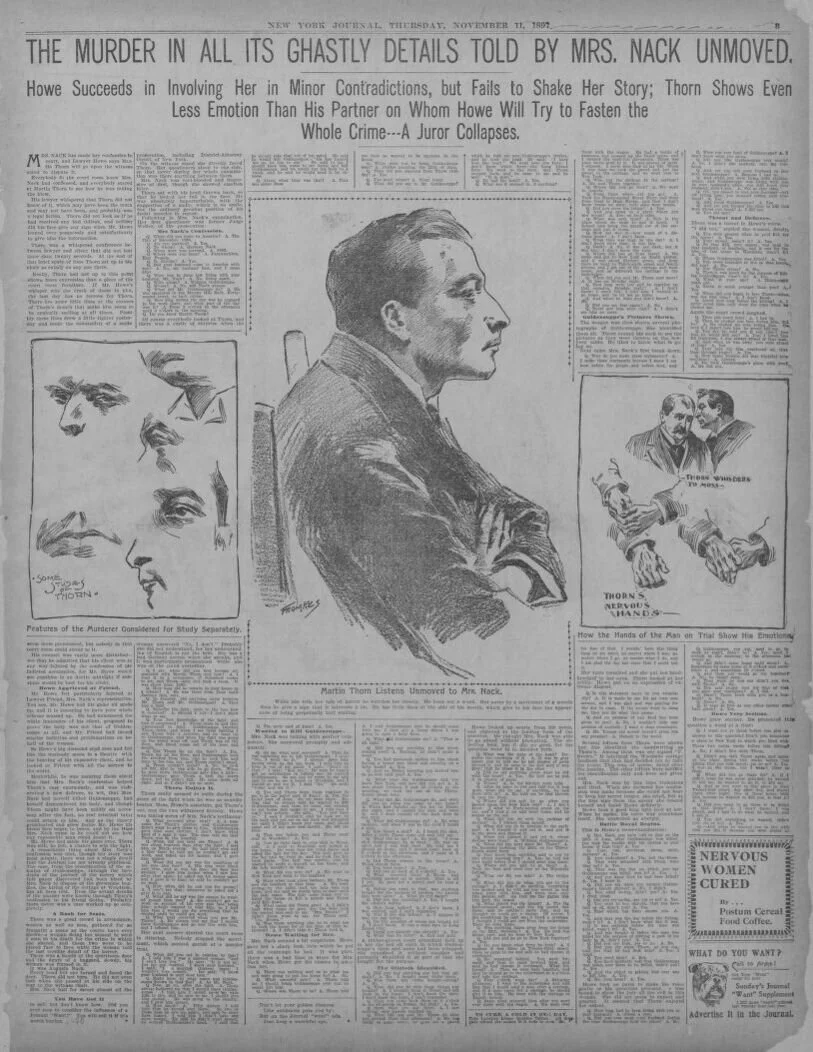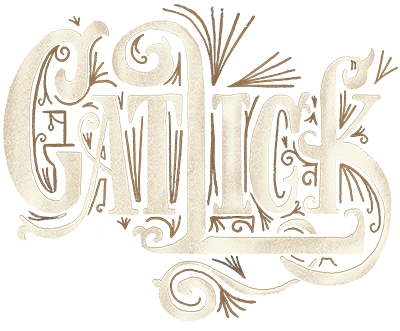Bonus Vault Content

William randolph hearst (1863 - 1951)
Hearst owned the New York Journal at the time of the story of the headless torso. At the age of 34, he was considerably younger than his more seasoned rival, Joseph Pulitzer.
joseph pulitzer (1847 - 1911)
At the time of the headless torso story, Joseph Pulitzer was one of the kings of media. His publication, the New York World, engaged in a fierce circulation battle in the summer of 1897.
the headless torso story
In the summer of 1897, a group of boys discovered a male torso in New York’s East River. The story became a media sensation, and it sparked a war of journalism between William Randolph Hearst’s New York Journal and Joseph Pulitzer’s New York World.
courtroom sketches
During the trial of the mystery of the headless torso, illustrators for the New York Journal sketched images of the trial proceedings. They would then affix them to trained carrier pigeons who would fly them to the NYJ newsroom across town. The images were then transposed and ready to be printed in the paper’s afternoon edition.



pulitzer & hearst as “yellow kids”
The year after the headless torso story brought even more drama between Pulitzer and Hearst. Many historians argue that their bombastic coverage of an international conflict triggered the Spanish-American War of 1898.
”Editorial cartoon by Leon Barritt, 1898. Newspaper publishers Joseph Pulitzer and William Randolph Hearst, full-length, dressed as the Yellow Kid (a popular cartoon character of the day), each pushing against opposite sides of a pillar of wooden blocks that spells WAR.”
Via Wikimedia
Houdini in atlanta
Houdini’s first visit to Atlanta came during the first week of 1912. He performed two shows daily at downtown’s Forsyth Theater.
hearst buys the atlanta georgian
This headline ran in the Feb. 6, 1912, edition of the Atlanta Constitution. News that William Randolph Hearst had purchased a publication in the south’s most powerful city sent shockwaves through the state.
ripper sarcasm from smaller papers
This article ran Feb. 3, 1912, in the Valdosta Times, a small-town paper in south Georgia.
the ripper in gainesville?
Police in the small town of Gainesville received a cryptic letter from someone purporting to be “Atlanta’s Black Jack the Ripper.”
via The Atlanta Constitution, Feb. 18, 1912
the ripper’s letter
A modern interpretation of the letter sent to the Gainesville Police Department.
Knife illustration by Rachel Eleanor











